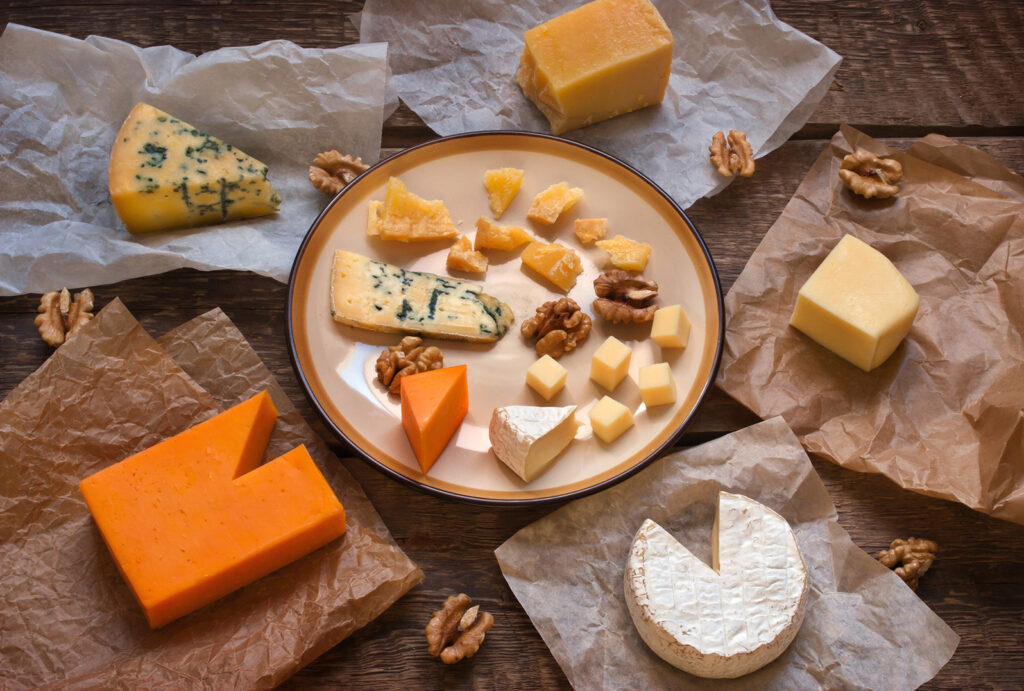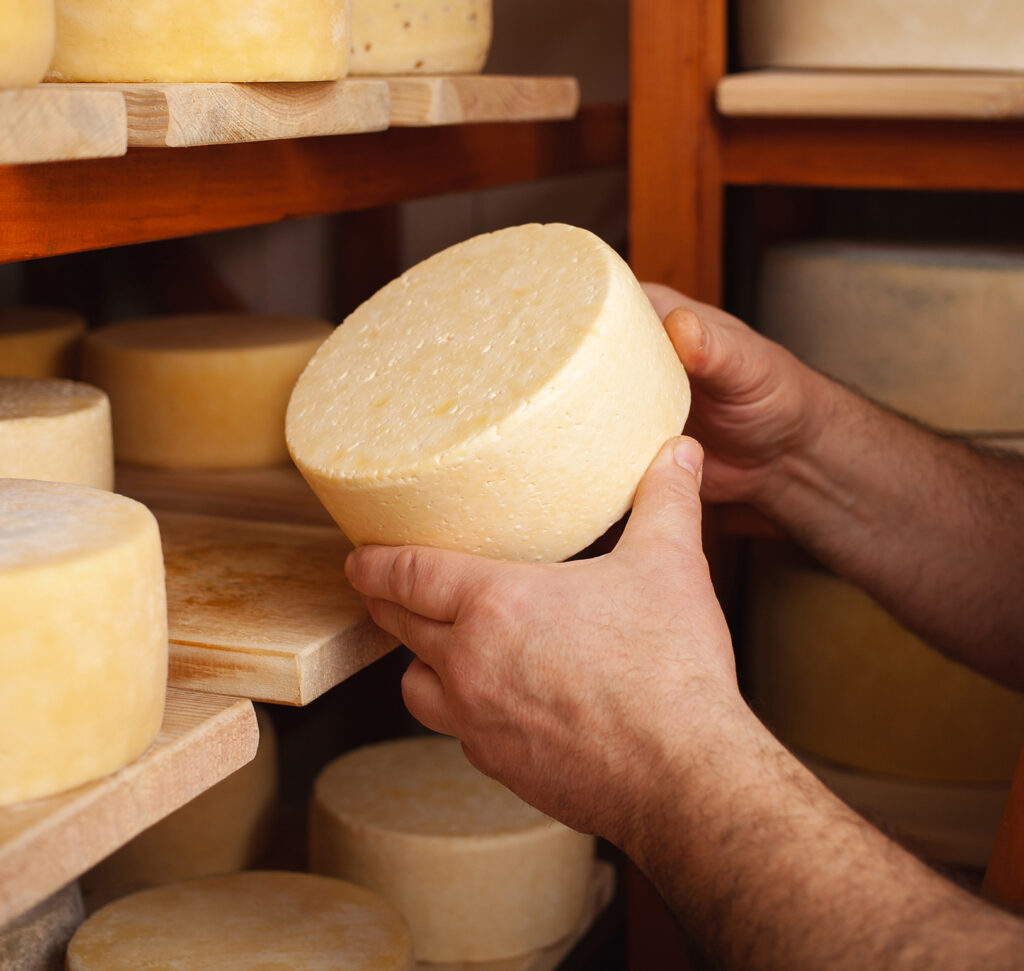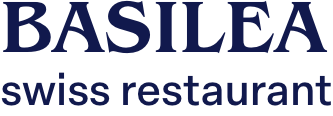The nutritional properties of Swiss cheeses are closely linked to the delicacy with which they are treated in their production process, and to the use of fresh milk, which contributes to making them an easily digestible food, since it maintains the bacterial flora.
Cheese is an important element of a complete and balanced diet. And since it is made by removing the water from the milk, it is a real milk concentrate with its main components: proteins, vitamins, fat and valuable mineral salts such as calcium and phosphorus.
Cheese is particularly rich in proteins, which are necessary for cell formation.
Children have an important need for them and, in the case of adults, protein substances have the function of regenerating cells. Cheese proteins contain almost all the vital constituent elements, including those that the body cannot produce on its own and must find in food. As an example, 100 grams of hard cheese such as Le Gruyére AOC or Emmentaler AOC provide more than half of the daily protein required for an adult man.

The milk fat contained in cheese is a good source of energy.
In cheese, it is present in the form of tiny globules, making it very easy to digest. In addition, fats make food more palatable, as they are the carrier of various aromatic substances.
Cheese also contains various water-soluble vitamins of the B group, and is particularly rich in liposoluble vitamins such as A, D, E and K, as well as provitamin A carotenol. D, E and K, as well as provitamin A carotenol. The latter gives the cheese its characteristic yellow color. Vitamin A plays an important role for eyesight and is found only in food products of animal origin such as milk and cheese.
Calcium and phosphorus are essential mineral salts present in large quantities in cheese. They are essential for the formation of teeth and for dental health. In addition, calcium is involved in muscle contraction and blood coagulation, and is an activator of certain enzyme systems. No other food product contains as much of these mineral salts as cheese and dairy products in general. It is worth noting that Swiss hard rind cheeses such as Emmentaler AOC, Le Gruyére AOC and Sbrinz AOC contain proportionally more calcium than other cheeses.
Furthermore, different studies have also shown that Swiss cheeses are rich in tryptophan, an amino acid that helps prevent and/or overcome depressive states, anxiety and even phobias.
SWISS CHEESES:
SYNONYMOUS WITH QUALITY
Swiss cheesemakers are passionate about their traditions, and that is why cheeses are made today using the same methodology that was used hundreds of years ago. However, the whole process has improved with the application of new techniques, but always taking into account that these do not damage or compromise the quality of the cheese.
In this sense, Swiss cheesemakers use advanced technology to control the temperature of the huge milk vats, to cut the milk or to move the large wheels of cheese in the ripening cellars, although the hand of man is still present throughout the process and is indispensable.
A demonstration of Switzerland's commitment to the quality of its products is that all the country's cheese dairies [of which there are about 1,300] are open around the clock, as the cows never stop giving milk. Moreover, cheese makers are obliged to use raw, freshly milked milk, which is why they cannot afford to close, even for Christmas.

100% NATURAL CHEESE
Swiss cheesemakers use only natural products for cheese making. Raw milk, salt, a small dose of natural rennet and lactic ferments are the only ingredients.
The use of additives is absolutely forbidden. For this reason, visitors usually find the doors open at Swiss cheese dairies, where master cheesemakers like to proudly show how only natural ingredients have a place in the production process.
The use of raw milk requires it to be in perfect condition to ensure that the cheese is in optimal conditions for both human consumption and preservation. For this reason, the quality of the milk is constantly monitored not only by the farmers and the government, but also by the cheese masters.

In the cheese factories, the milk is analyzed upon arrival, and a sample of each production is kept for a more rigorous analysis in case any anomaly is discovered during the cheese ripening process.
For this same reason, the feeding of cows with silage is forbidden, since silage produces bacteria that remain in the cheese and would impair its quality. Likewise, cows cannot have been treated with antibiotics because they remain in the milk and have an impact on the poor ripening of the cheese, which prevents it from being fit for consumption and cannot be marketed.
All these reasons make it so important for the Swiss cheesemaker to control the quality of the milk.
THE APPELLATION OF ORIGIN
Their designation of origin and 100% natural production make Swiss cheeses unique products.

Swiss cheeses have a Denomination of Origin (AOC), and are the result of the operation of a precision gear that allows any grocery store to offer a 100% natural product, with total sanitary guarantee and with all the flavor of yesteryear.
Likewise, the label on a Swiss cheese guarantees that you are acquiring a product made with raw milk, without additives, from cows fed on natural pasture, not treated with hormones or antibiotics, and with the ripening time appropriate to its typology.
The purity and natural qualities of Swiss cheese, therefore, make this food a product of great interest to today's consumers, who are more concerned than ever about foods with controlled origins and all-natural ingredients.
Swiss cheeses also have many beneficial properties for the human organism that make them especially recommendable as a complement to a good diet. Thanks to their hard rind, for example, they contain proportionally more calcium than other cheeses, and they also have a large amount of vitamin D, which contributes to a better assimilation of this important nutritional contribution.
The properties of Swiss cheeses are closely linked to the care and attention with which they are produced: from the milk, from cows fed on natural pastures, to the aging cellars.
This means that the entire production process, down to the smallest detail, involves a careful balance between tradition and technology.
Thanks to the regulatory offices and the Appellations of Origin, the preservation of the Swiss primary sector and the non-desertification of Alpine areas are guaranteed. Their activity and rigorous control make it possible to maintain the economic level of small cheese dairies, which are not forced to integrate into the industrial fabric in order to survive.




